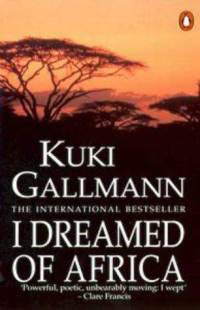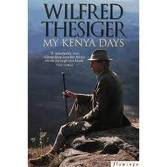
This book recounts the author’s life in Kenya. Originally from Italy, she had always been fascinated by Africa, and eventually moved there with her second husband, buying a large ranch on which they kept cattle and provided a safe haven for wildlife.
She provides an interesting picture of Kenya in the 70s and 80s, at the tail end of the Happy Valley period, and includes many accounts of her intimate experience with African wildlife. The heart of the book however is her various bereavements. Her husband is killed in a car crash, and then a few years later, her son, an amateur herpetologist, is killed by a puff adder. Their funerals are minutely recorded, as are those of two or three of her friends.
Now, you would have to have a heart of stone not to be moved by this.
I think I may have a heart of stone.
Great suffering does not necessarily make a great novel. Heartfelt sincerity, while important, is not all you need. (Oscar Wilde: “All bad poetry is sincere.” Ouch)
Now, before you start hating me in the Comments, let me give you an extract, and you hand on heart try and tell me that this is not dreadful:
There, on the extreme edge of the Great Rift Valley, guarding the gorge, grows an acacia tree bent by timeless winds. That tree is my friend, and we are sisters. I rest against its trunk, scaly and grey like a wise old elephant. I look up through the branches, twisted arms spread in a silent dance, to the sky of Africa . . . A last eagle flies majestically back to nest on steep cliffs.
Clearly, while she may have dreamed of Africa, she did not dream of writing without cliché.
In the interests of fairness, I should say it is very readable, especially if you skip the funerals. I couldn’t sleep last night, and polished off about 200 pages from 1am.
I admire the lady, who has a genuine and inspiring love for the Kenyan landscape, and has had a genuinely terrible time; but I just cannot admire the writer.

